Recent Blog Posts
What Happens After You File an Eviction Case in an Illinois Court?
 When an eviction case is filed in an Illinois court, the case moves through several legal steps before the tenant can be required to leave. Filing the complaint does not remove the tenant right away. Illinois law requires landlords to follow specific legal steps before the tenant can be required to leave.
When an eviction case is filed in an Illinois court, the case moves through several legal steps before the tenant can be required to leave. Filing the complaint does not remove the tenant right away. Illinois law requires landlords to follow specific legal steps before the tenant can be required to leave.
As of 2026, eviction cases in Illinois must follow strict court procedures, and our Naperville, IL landlord eviction lawyer helps property owners complete each step properly and protect their rights.
What Happens After You File the Eviction Complaint in Illinois?
Once you file the eviction complaint, the court opens a case and assigns a court date. This is the first hearing where the judge reviews the case.
When Is Drug Possession a Felony in Illinois?
 Drug possession becomes a felony in Illinois under very specific circumstances. Provisional federal data released in 2025 estimates that drug overdoses are on the rise in the country. Arrests often occur during traffic stops on heavily traveled roads like I-88 and I-355. If you are facing charges, a DuPage County, IL drug possession defense lawyer can explain what the law means for your situation and what steps may help protect your future.
Drug possession becomes a felony in Illinois under very specific circumstances. Provisional federal data released in 2025 estimates that drug overdoses are on the rise in the country. Arrests often occur during traffic stops on heavily traveled roads like I-88 and I-355. If you are facing charges, a DuPage County, IL drug possession defense lawyer can explain what the law means for your situation and what steps may help protect your future.
When Does Drug Possession Become a Felony in Illinois?
Most controlled substance possession charges in Illinois are felonies. These cases fall under the Illinois Controlled Substances Act. A felony can lead to prison time and long-term consequences. A misdemeanor is less severe and usually carries shorter jail sentences or probation.
What Must Landlords Prove in Court to Obtain an Eviction Order in Illinois?
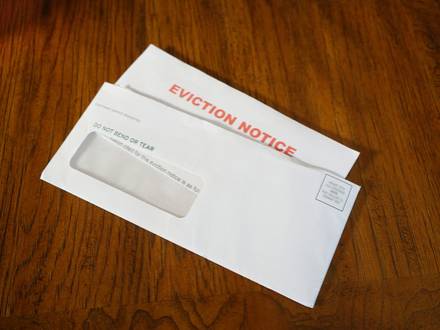 Eviction cases often feel straightforward from the outside, but Illinois law requires landlords to meet specific legal standards before a judge can order a tenant to move out. In 2025, data from the Eviction Lab at Princeton University showed that millions of eviction cases are filed across 10 states each year, including tens of thousands in Illinois courts.
Eviction cases often feel straightforward from the outside, but Illinois law requires landlords to meet specific legal standards before a judge can order a tenant to move out. In 2025, data from the Eviction Lab at Princeton University showed that millions of eviction cases are filed across 10 states each year, including tens of thousands in Illinois courts.
As of 2026, Illinois courts still require landlords to follow strict procedures and prove each legal element of their case. If you are involved in an eviction matter, a Naperville, IL landlord eviction lawyer can help explain what the court will look for and whether those requirements have truly been met.
What Does a Landlord Have To Prove To Evict a Tenant in Illinois?
To obtain an eviction order, a landlord must show the court that there is a valid legal reason for eviction and that all required steps were followed. Judges do not grant eviction orders simply because a landlord wants possession of the property.
What Is Constructive Possession in Illinois Drug Cases?
 Constructive possession in Illinois drug cases means you can be charged with possession even if drugs were not found on your body. Illinois courts allow prosecutors to rely on constructive possession when drugs are found in places like cars, homes, or shared spaces. These cases are often more complicated because the state must rely on circumstantial evidence instead of drugs being found directly on a person.
Constructive possession in Illinois drug cases means you can be charged with possession even if drugs were not found on your body. Illinois courts allow prosecutors to rely on constructive possession when drugs are found in places like cars, homes, or shared spaces. These cases are often more complicated because the state must rely on circumstantial evidence instead of drugs being found directly on a person.
In 2025, the U.S. Department of Justice reported more than 1,400 narcotics and drug convictions nationwide in a single month. Possession cases are frequent and are still being pursued. That broader enforcement climate matters when prosecutors look for ways to link drugs to a person indirectly.
If you are facing this type of charge, our DuPage County, IL drug possession defense lawyer can help you understand how to fight a possession charge.
What Is Aggravated DUI in Illinois?
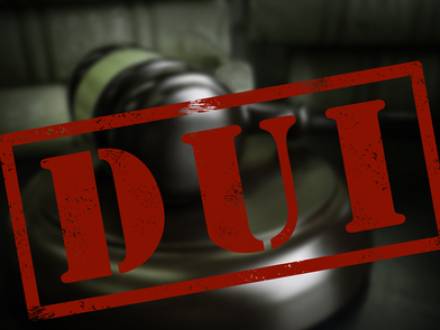 Even if no one was injured, certain facts can turn a misdemeanor driving under the influence (DUI) charge into a felony. In Illinois, aggravated DUI carries harsher penalties and long-term consequences. Before you step into a courtroom, contact our Naperville, IL DUI defense lawyer. At Appelman Law LLC, we can help you understand what you are facing and what options may exist.
Even if no one was injured, certain facts can turn a misdemeanor driving under the influence (DUI) charge into a felony. In Illinois, aggravated DUI carries harsher penalties and long-term consequences. Before you step into a courtroom, contact our Naperville, IL DUI defense lawyer. At Appelman Law LLC, we can help you understand what you are facing and what options may exist.
How Is Aggravated DUI Defined Under Illinois Law?
Under 625 ILCS 5/11-501(d), Illinois law lists specific circumstances that elevate a standard DUI to an aggravated status. Unlike a standard DUI, which is usually a misdemeanor, an aggravated DUI is a felony offense. The exact felony class depends on the facts of the case, such as prior convictions or whether someone was harmed.
What Factors Can Turn a DUI Into an Aggravated DUI in Illinois?
Aggravated DUI applies when certain conditions are present at the time of the arrest or offense. Common factors that can result in an aggravated DUI charge include:
When Drug Charges Trigger Child-Endangerment in Illinois
 Illinois prosecutors may file additional charges when children are present during a traffic stop, drug raid, or alleged drug delivery. These are known as "child-endangerment add-ons" under 720 ILCS 5/12C-5. These add-on charges can quickly transform simple possession into a multi-felony situation with much more serious consequences. Even when a child was not directly involved and was not harmed, Illinois law allows prosecutors to argue that the drug activity placed the child in a "dangerous situation."
Illinois prosecutors may file additional charges when children are present during a traffic stop, drug raid, or alleged drug delivery. These are known as "child-endangerment add-ons" under 720 ILCS 5/12C-5. These add-on charges can quickly transform simple possession into a multi-felony situation with much more serious consequences. Even when a child was not directly involved and was not harmed, Illinois law allows prosecutors to argue that the drug activity placed the child in a "dangerous situation."
Child endangerment charges carry separate penalties, DCFS involvement, and even the loss of parental rights in some cases. Anyone facing drug allegations in Illinois with add-on child endangerment charges must understand how these charges work and how an experienced Naperville, IL criminal defense lawyer can fight the charges in the most effective manner.
Illinois Drug Search Warrants Built on Anonymous Phone Calls
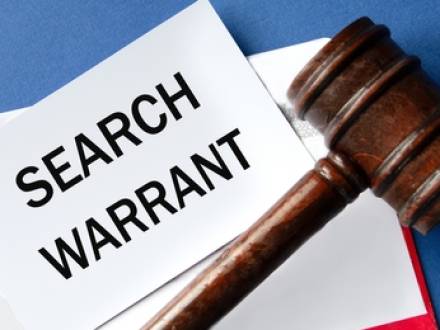 In their zeal to arrest those who are allegedly involved in the illegal drug business, police may sometimes skip a few steps and obtain a search warrant based solely on an anonymous tip. A neighbor may report "suspicious activity," or, in some cases, the anonymous tip is simply a way to "get back at" someone for a real or imagined slight.
In their zeal to arrest those who are allegedly involved in the illegal drug business, police may sometimes skip a few steps and obtain a search warrant based solely on an anonymous tip. A neighbor may report "suspicious activity," or, in some cases, the anonymous tip is simply a way to "get back at" someone for a real or imagined slight.
Officers may use these unverified calls to support a search warrant request in drug investigations; however, if there is no corroboration, the warrant may be invalid, and the evidence may be suppressible. Anonymous tips are among the weakest forms of probable cause and are heavily scrutinized in Illinois courts under the Aguilar-Spinelli/Gates totality-of-the-circumstances test.
If your drug arrest was based solely on a search warrant that considered an anonymous tip "probable cause," speaking to an experienced DuPage County, IL criminal defense attorney gives you a much better chance at a positive outcome. Drug charges in Illinois can carry severe penalties, so you need an attorney who will aggressively fight for your future.
Removing Violent Tenants Without Legal Backlash in IL
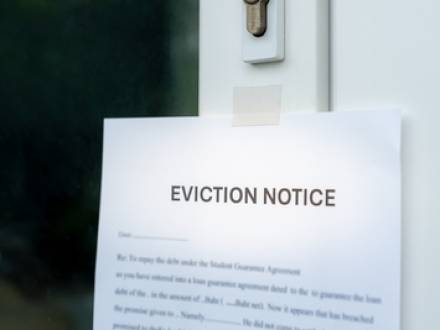 While Illinois landlords can face many issues with tenants, fights or violence between tenants can result in a legal double bind – a landlord who acts too slowly risks a negligence claim. At the same time, acting too quickly can risk violating tenant protections. Eviction for criminal or threatening conduct is allowed under the Illinois Forcible Entry and Detainer Act (735 ILCS 5/9-101 et seq) and the Chicago Residential Landlord and Tenant Ordinance (RLTO).
While Illinois landlords can face many issues with tenants, fights or violence between tenants can result in a legal double bind – a landlord who acts too slowly risks a negligence claim. At the same time, acting too quickly can risk violating tenant protections. Eviction for criminal or threatening conduct is allowed under the Illinois Forcible Entry and Detainer Act (735 ILCS 5/9-101 et seq) and the Chicago Residential Landlord and Tenant Ordinance (RLTO).
Landlords must follow strict notice, documentation, and due-process requirements. If you are a landlord facing such a situation, it can be highly beneficial to speak to a knowledgeable DuPage County, IL landlord eviction attorney. Doing so can minimize your exposure to retaliation or discrimination claims while handling a potentially volatile situation.
"Sniffing" for Alcohol: Are Passive Sensors Legal in Illinois?
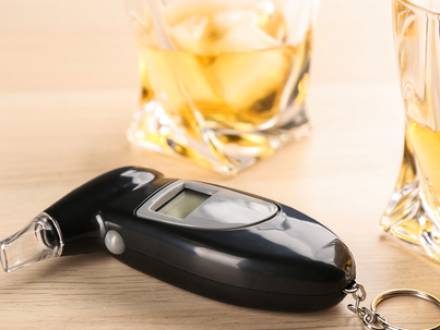 When police officers testify in DUI trials, you will often hear them say that they "smelled alcohol" on the driver’s breath or when they leaned in the open car window to speak to the driver. And, in fact, an officer smelling alcohol gives him or her the necessary probable cause to ask the driver to perform field sobriety tests or take a portable breathalyzer test.
When police officers testify in DUI trials, you will often hear them say that they "smelled alcohol" on the driver’s breath or when they leaned in the open car window to speak to the driver. And, in fact, an officer smelling alcohol gives him or her the necessary probable cause to ask the driver to perform field sobriety tests or take a portable breathalyzer test.
What most drivers may not realize is that in some cases, the "smell" may actually come from a passive alcohol sensor hidden inside the officer’s flashlight or other traffic-stop device. These tools detect alcohol vapor in the air around a driver before any formal test or consent occurs.
The use of these devices, while legal in Illinois, raises serious questions regarding whether drivers are being screened without consent. You can find out more about PAS devices below; however, speaking with a knowledgeable Naperville, IL DUI lawyer is always the best step for the most positive outcome available.
The Analogue Act: Surprising Drug Charges in Illinois
 When most of us think of drug charges, we generally think of substances like heroin, cocaine, or methamphetamine. However, you can face serious felony charges in Illinois for possessing or selling substances that are not technically listed as illegal but are chemically similar to controlled substances.
When most of us think of drug charges, we generally think of substances like heroin, cocaine, or methamphetamine. However, you can face serious felony charges in Illinois for possessing or selling substances that are not technically listed as illegal but are chemically similar to controlled substances.
Under the Illinois Controlled Substances Analogue Act (720 ILCS 570/401), while these synthetic or "look-alike" drugs are sometimes marketed as safe alternatives, Illinois law criminalizes them as if they were the real thing. This could lead to an unexpected arrest, complex lab testing, and the potential of severe criminal penalties for a drug you did not know was banned.
If you are facing criminal charges for a "controlled substance analogue," it is essential that you consult with a highly skilled Naperville, IL criminal defense attorney who can build a solid defense on your behalf. These are not charges that you should attempt to face on your own, as they could result in severe criminal penalties.





